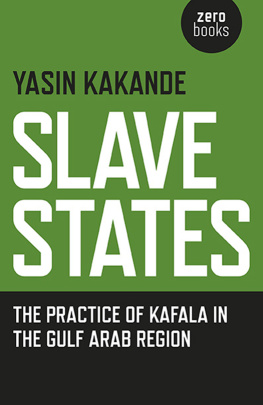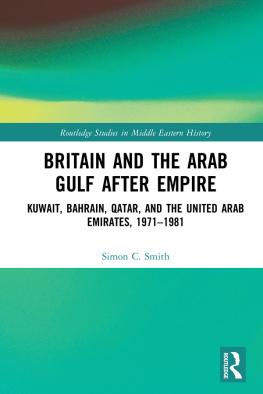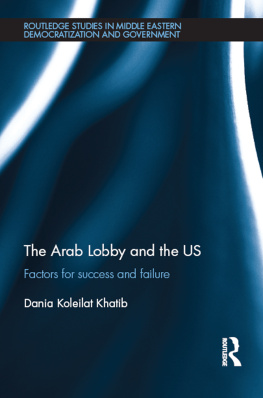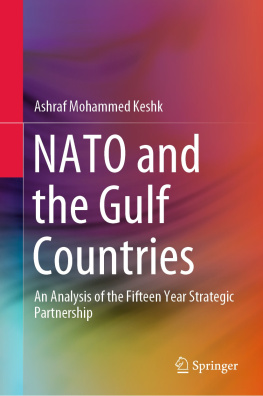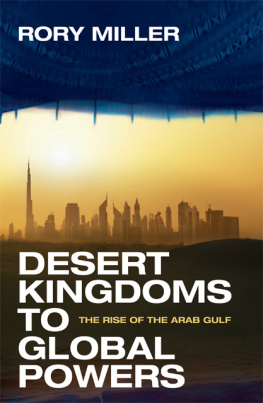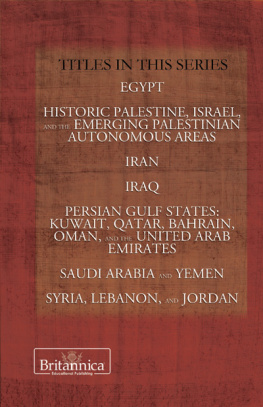Kakande - Slave States: the Practice of Kafala in the Gulf Arab Region
Here you can read online Kakande - Slave States: the Practice of Kafala in the Gulf Arab Region full text of the book (entire story) in english for free. Download pdf and epub, get meaning, cover and reviews about this ebook. year: 2015, publisher: Zero Books, John Hunt Publishing, genre: Politics. Description of the work, (preface) as well as reviews are available. Best literature library LitArk.com created for fans of good reading and offers a wide selection of genres:
Romance novel
Science fiction
Adventure
Detective
Science
History
Home and family
Prose
Art
Politics
Computer
Non-fiction
Religion
Business
Children
Humor
Choose a favorite category and find really read worthwhile books. Enjoy immersion in the world of imagination, feel the emotions of the characters or learn something new for yourself, make an fascinating discovery.
Slave States: the Practice of Kafala in the Gulf Arab Region: summary, description and annotation
We offer to read an annotation, description, summary or preface (depends on what the author of the book "Slave States: the Practice of Kafala in the Gulf Arab Region" wrote himself). If you haven't found the necessary information about the book — write in the comments, we will try to find it.
Kakande: author's other books
Who wrote Slave States: the Practice of Kafala in the Gulf Arab Region? Find out the surname, the name of the author of the book and a list of all author's works by series.
Slave States: the Practice of Kafala in the Gulf Arab Region — read online for free the complete book (whole text) full work
Below is the text of the book, divided by pages. System saving the place of the last page read, allows you to conveniently read the book "Slave States: the Practice of Kafala in the Gulf Arab Region" online for free, without having to search again every time where you left off. Put a bookmark, and you can go to the page where you finished reading at any time.
Font size:
Interval:
Bookmark:


First published by Zero Books, 2015
Zero Books is an imprint of John Hunt Publishing Ltd., Laurel House, Station Approach, Alresford, Hants, SO24 9JH, UK
www.johnhuntpublishing.com
www.zero-books.net
For distributor details and how to order please visit the Ordering section on our website.
Text copyright: Yasin Kakande 2014
ISBN: 978 1 78535 100 6
Library of Congress Control Number: 2015935798
All rights reserved. Except for brief quotations in critical articles or reviews, no part of this book may be reproduced in any manner without prior written permission from the publishers.
The rights of Yasin Kakande as author have been asserted in accordance with the Copyright, Designs and Patents Act 1988.
A CIP catalogue record for this book is available from the British Library.
Design: Stuart Davies
Printed and bound by CPI Group (UK) Ltd, Croydon, CR0 4YY, UK
We operate a distinctive and ethical publishing philosophy in all areas of our business, from our global network of authors to production and worldwide distribution.
Dedication
To Sauda, Latifa, Taqiu and Hadijja. I feel blessed having you all in my life.
Preface
I arrived in Doha, Qatar on 19 June 2014. It had been two months since I was terminated from The National newspaper and expelled from the United Arab Emirates (UAE) for publishing my autobiographical book The Ambitious Struggle. The whole of Doha currently is like a construction site and workers can be seen busy on construction sites even well after midnight, as I discovered when I arrived in the city and a taxi driver transported me to my hotel. The driver told me the citys biggest problem is rent prices rising every day and more people from everywhere coming to work in Doha. He told me he already had taken five clients that night, four of whom (including myself) had arrived in Doha for work. Although I was coming to look for a job, my mind was already set that I was not going to stay in any GCC country for much longer. I was trying to set moderate targets and this time was mainly needed to complete this book.
My expulsion had come when I was about to complete this books first draft, but still a lot of work needed to be done including the editing, proofreading, designing and even publishing, all of which required money that I could not raise easily in my native country of Uganda. I set my sights on completing the book, paying all the necessary expenses, and then quitting the Gulf Arab countries.
My Doha visa proved to be an expensive one. While Qatar Airways has direct flights to Uganda and an office in Kampala, the tickets sales assistants insisted they could not issue any visa without confirmation of proper employment and an endorsement from my employer that I would be returning. I went to Mombasa again where a friend conferred with his contacts at the Nairobi Qatar offices, who eventually approved my visa with conditions of a US $1,000 deposit, a hotel booking of at least three paid days (US $400), a return air ticket of $1,100 and finally a tourist visa of US $110. If one is a European or an American who is given a visa on arrival at the airport, that individual could never imagine what a hassle it is for countless millions to visit these GCC countries.
Therefore, as I present this book, I am quite sure there will be many other books about the plight of migrant workers in the GCC countries, but very few will be written from the perspective of a poor migrant worker who lived and shared these squalid accommodations with other workers. No, an expatriate journalist from Africa cannot make a comfortable, stable livelihood, especially for a family with young children, in the GCC, given the current rules that impose many restrictions upon immigrants especially from the poorest subcontinental regions of Africa and Asia.
The book comprises five sections. The first section offers a brief history of Kafala and the power of the sponsors lobby which has worked aggressively to sustain the system even as serious moral challenges to its continuing existence are raised. The introductory section also focuses on the perils that immigrants face as they seek work in Qatar and neighboring GCC countries, and the troubles of those who remain in the shadows because of their undocumented status.
The second section goes into extensive detail about the second-class status of immigrants who labor under Kafala sponsorship and the effects and impact of societal discrimination that borders on humiliation and indecency. It explores how societal exclusion is enforced through punitive threats and strict controls that prevent migrant workers from traveling freely and safely at their own will. The extent of abuses under Kafala covers a disturbing range in which fraud and wage exploitation are rampant, and workers dissatisfied with their employers or employment conditions soon discover they have virtually no recourse for remedying their circumstances. They are forced to live in cramped accommodations and often have little hope of securing long-term financial stability. Even if a few immigrants are fortunate enough to have their disputes adjudicated, many of those challenges reach a dead end where sponsors and employers who knowingly abuse the legal requirements of Kafala often are beyond legal reproach.
The third section focuses on the manifestations of modern-day slavery in which racism plays an unfortunately significant role. Hate propaganda, stigmatization and subjugation are rarely challenged with any rigor or clarity by the local or national media, which dutifully respects the ruling elites objective of maintaining the status quo without any threat of disruption or change. Even cases involving violence and murder are persistently framed in a way that demonizes immigrants, especially when the evidence would suggest that employers and sponsors were irresponsible about their own legal obligations. Few manage to escape with any hope of having their own human dignity and respect fully and rightfully restored.
The fourth section chronicles the immense hurdles of bureaucracy that immigrants encounter, where the economic self-interests of Kafala sponsors and employers always trump the concerns or expectations of workers and even the well-being of members of immigrant families.
The fifth section includes accounts about how the most basic emotional, sexual, and personal rights of immigrants are controlled and ignored. Ones own right to intimate and sexual dignity is denied, as one essentially loses control over the right to ones body. The most unsettling accounts of sexual abuse and exploitation are consistent with all other forms of abuse that are witnessed within the practice of Kafala sponsorship. To dramatic effect, ones soul is starved in ways that permanently damage ones emotional capacity for true and sincere intimacy. Prostitution and human trafficking occur with a level of frequency that should upend the most popularly conceived notions about moral decency and strictness in the Gulf Arab region.
The concluding portion of the book is an epilogue about my own experience as an immigrant employee (journalist). In it I discuss how rigorously sustained press censorship thwarts even the capacity to ask simple questions about the propriety of a sponsorship system undermining the most basic principles and tenets of a faith and culture that have defined the long and incredible history of the Gulf Arab region.
Kafala: The Greatest Insult to Islam
Font size:
Interval:
Bookmark:
Similar books «Slave States: the Practice of Kafala in the Gulf Arab Region»
Look at similar books to Slave States: the Practice of Kafala in the Gulf Arab Region. We have selected literature similar in name and meaning in the hope of providing readers with more options to find new, interesting, not yet read works.
Discussion, reviews of the book Slave States: the Practice of Kafala in the Gulf Arab Region and just readers' own opinions. Leave your comments, write what you think about the work, its meaning or the main characters. Specify what exactly you liked and what you didn't like, and why you think so.

